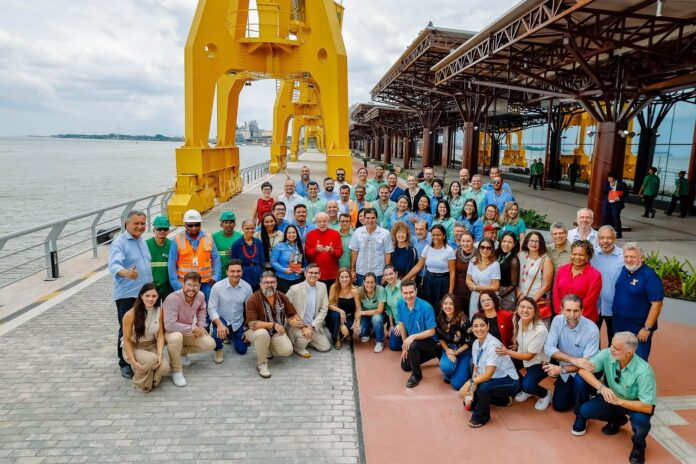Dear Siaka, As the first week of the UN Climate Change Conference (COP30) draws to a close, we’ve had valuable and urgent discussions about the systems and interventions and investment structures we can build to more ambitiously tackle the climate crisis. But like any building, our work will crumble if the foundations aren’t strong—and here in Belém, I think that’s true both in a literal sense and a figurative one. Quite simply, what’s under our feet matters. The literal foundations of regenerative ecosystems—healthy soils—are the basis for everything we’re working to build here at COP30. “Soil is one of the biggest potential [ways] to address the issue of climate change…Soil is life,” Rosinah Mbenya, Country Coordinator for PELUM Kenya, told us yesterday at the Action on Food Hub. Healthy soils not only help nourish people and animals but also sequester carbon from the atmosphere and contribute to a vibrant microbiome that can actually reduce the need for pesticides, making them all-around vital to a variety of climate solutions. And as experts discussed yesterday, the folks who can shepherd those healthy soils are farmers! “Slowly, intensification has degraded soils, and yet farmers are the ones who can aggrade. They are actually land managers and many of them manage to increase soil health,” says Sieg Snapp, Director of the Global Change Biology Initiative at Michigan State University and Senior Advisor to CGIAR. As we continued to discuss at a UNFCCC Side Event yesterday afternoon, supporting farmers is key to achieving the climate mitigation and adaptation goals we desperately need to meet. When farmers are making the transition toward regenerative practices, the first year is critical, farmer and ecologist Anand Ethirajalu said. It’s not always easy to see an immediate payoff—but the benefits are undeniable. “Farmers that are farming conventionally are sometimes scared if they don’t have proof that a transition is viable,” said Thomas Cooper Patriota, Advisor to the Brazil Ministry of Agrarian Development. Follow me here: This is what leads to the more figurative “foundation”—the truth. Here at COP30, information integrity has been made part of the Action Agenda for the first time, which I applaud because it’s crucial to recognize that we can only solve the climate crisis when we have reliable data, factual analysis, and proof that solutions like regenerative farming work. Earlier this week, ten countries endorsed a Declaration on Information Integrity on Climate Change, and I hope many more follow suit. Frankly, it’s disheartening to see misinformation and falsehoods circulating about COP30 and the facts of climate change in general—including from people here on the ground. According to the organization Transparency International, more than half of COP30 national delegation members did not fully disclose other potentially conflicting affiliations they might have. “Transparency is the cornerstone of trust in global climate negotiations,” Brice Böhmer, climate and environment lead at Transparency International, told The Guardian this week. When we talk about large-scale investments from the private and philanthropic sectors, we need transparency on where that money goes. New reporting from The Guardian yesterday shows that, without oversight in 2021 and 2022, a significant portion of global climate financing never actually was allocated to the poorest countries that need it most. Without transparency, there’s no accountability. When we talk about supporting farmers, we need to allow them a platform to be transparent about issues that are front-and-center. Yesterday morning, about 100 peaceful Indigenous protesters blocked the main entrance to COP for about 90 minutes, one of several protests in recent days to draw attention to the harm being done to the Amazon. Without transparency, there’s no climate justice. Tomorrow is a rest day here at COP30; a time to regroup and recharge before we head into a busy second week. I hope you’ll join me in continuing to reflect on strengthening the foundations—both literally and figuratively—so that the solutions we build can be stable and long-lasting. Onward, Dani |
About Us
EnterpriseThrob is an enterprise online news medium, published by a team of tested news persons. The medium provides intelligent information and insight in various areas of the Nigerian economy as it reflects on the global space.
Contact us: For News, Opinions and Advertisement, Please reach us via:
PHONE:+234-8061396410. EMAIL: enterprisethrob@gmail.com
© Copyright 2024 - EnterpriseThrob.com



